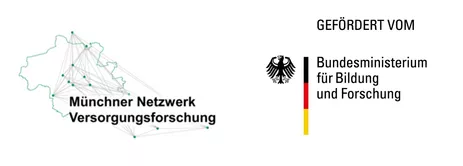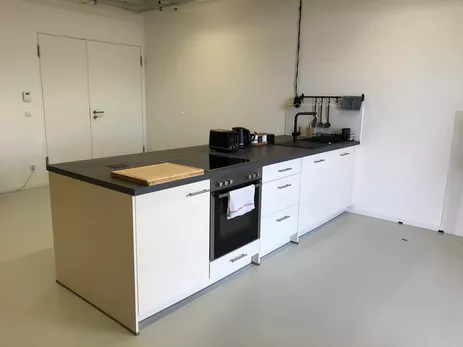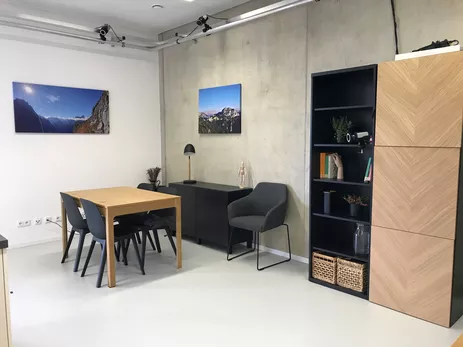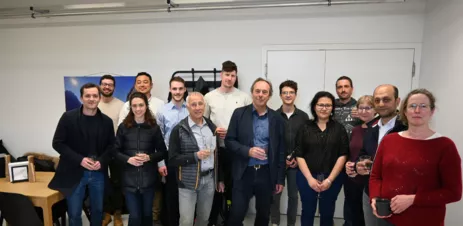Neurorehabilitation & Prävention
Forschung zur Prävention und Rehabilitation neurologischer Erkrankungen wie Schlaganfall, Infantile Zerebralparese, Multiple Sklerose, Morbus Parkinson und Demenz sowie Forschung für Gesundes Altern in den Bereichen Feinmotorik, Alltagsaktivitäten und Posturale Kontrolle. Zum Einsatz kommen unter anderem neueste Technologien wie Akzelerometrie und Augmented Reality.
eXprt: Exoskeleton and Wearables Enhanced Prevention and Treatment
Laura Stetter
Project title: eXprt - Exoskeleton and Wearables Enhanced Prevention and Treatment
Funding period: May 2022 - April 2026
Project website: https://web.tum.de/en/inw/our-innovation-networks/exprt/
For more information about TUM Innovation Networks, see https://web.tum.de/en/inw/home/
Motivation
The Innovation Network eXprt, consisting of nine chairs at TUM and seven associated researchers, has formed a multidisciplinary team merging engineering, neuroscience, and clinical neurology expertise to analyze and compare behavior in clinical test with controlled lab as well as uncontrolled free-world conditions. To this aim, a living lab was installed and wearable technologies are created. This collaborative effort aims to develop tools for the sensitive detection of sensorimotor and cognitive impairments in daily life and assess the impact of exoskeleton use on everyday activities. Over the project's 4-year duration, the International Graduate School of Science and Engineering (IGSSE) closely monitors the progress of Innovation Networks.
Our research focus
Existing methods for evaluating human performance when evaluating recovery or utilizing assistive technologies, such as exoskeletons, virtual reality, and exergaming applications, predominantly rely on general performance indicators like task completion, accuracy and elapsed time. Essentially, it is not solely a matter of whether tasks can be accomplished but equally vital to consider how they are executed. For individuals with disabilities, task completion directly influences their independence and everyday life, making it indispensable. Nonetheless, understanding the intricacies of task execution can play a pivotal role in achieving enduring rehabilitation benefitsThe Chair of Human Movement Science makes efforts to develop method of movement analysis and to employ wearable sensors for assessing the consequences of brain damage and evaluating the impact of exoskeleton training on daily life behavior. Our approach is centered on evaluating the effects of rehabilitation by employing metrics for movement smoothness, quality, and complexity and more. This approach not only aims to provide users with valuable insights into their rehabilitation progress but also seeks to inform the design of assisting devices such as exoskeletons to enhance their role in rehabilitation. Since wearable data from real world behavior is highly variable, we conduct more controlled measurements of daily life activities in the environment of a living lab (see Fig.).
Our objectives encompass the development of diagnostic tools capable of shedding light on movement quality during everyday activities, as well as the assessment of sensorimotor and cognitive performance in daily life. Furthermore, we endeavor to identify distinctive features indicative of specific impairments or changes in mobility and function. Additionally, we are dedicated to enhancing data integration and visualization to ensure that wearable sensor data becomes more actionable for both patients and clinicians. Ultimately, our goal is to offer a clearer understanding of how therapeutic interventions affect daily life activities and contribute to individual rehabilitation.
MobilE-Phy
Joachim Hermsdörfer
Der Lehrstuhl für Bewegungswissenschaft, unter der Leitung von Prof. Joachim Hermsdörfer, ist Projektpartner in dem durch das Bundesministerium für Bildung und Forschung (BMBF) geförderten Verbundprojekt: “Münchner Netzwerk Versorgungsforschung – MobilE-Net”. Dabei beteiligen wir uns am Teilprojekt MobilE-PHY, welches das Ziel hat, die Wirksamkeit der Integration physiotherapeutischer Maßnahme in die Primärversorgung für die Erhöhung der Mobilität und Teilhabe von Patienten mit Schwindel und Gleichgewichtsstörungen zu untersuchen. Unsere Verantwortung liegt in diesem Teilprojekt in der wissenschaftlichen Unterstützung der Aufnahme, Analyse und Interpretation alltäglicher körperlicher Aktivität in der oben genannten Patientengruppe, welche mittels Aktivitätssensoren gemessen wird.
Förderzeitraum: September 2018 – Februar 2020
Links: https://www.mobile-net.med.uni-muenchen.de/index.html




